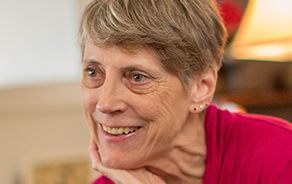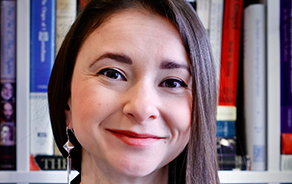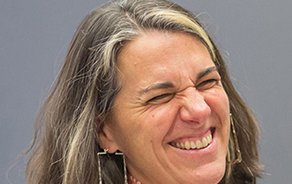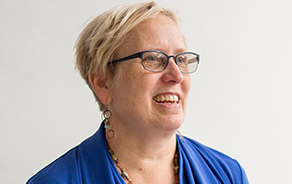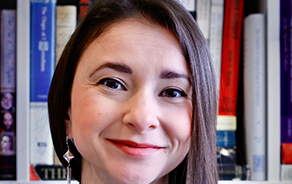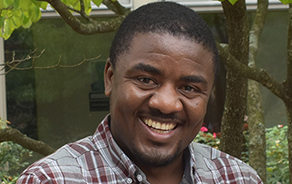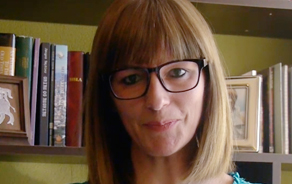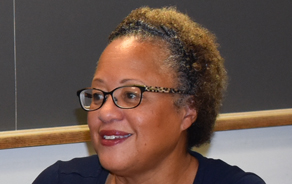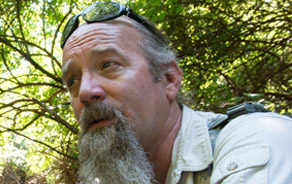Meet Brigidda Zapata Bell, Assistant Professor of New Testament
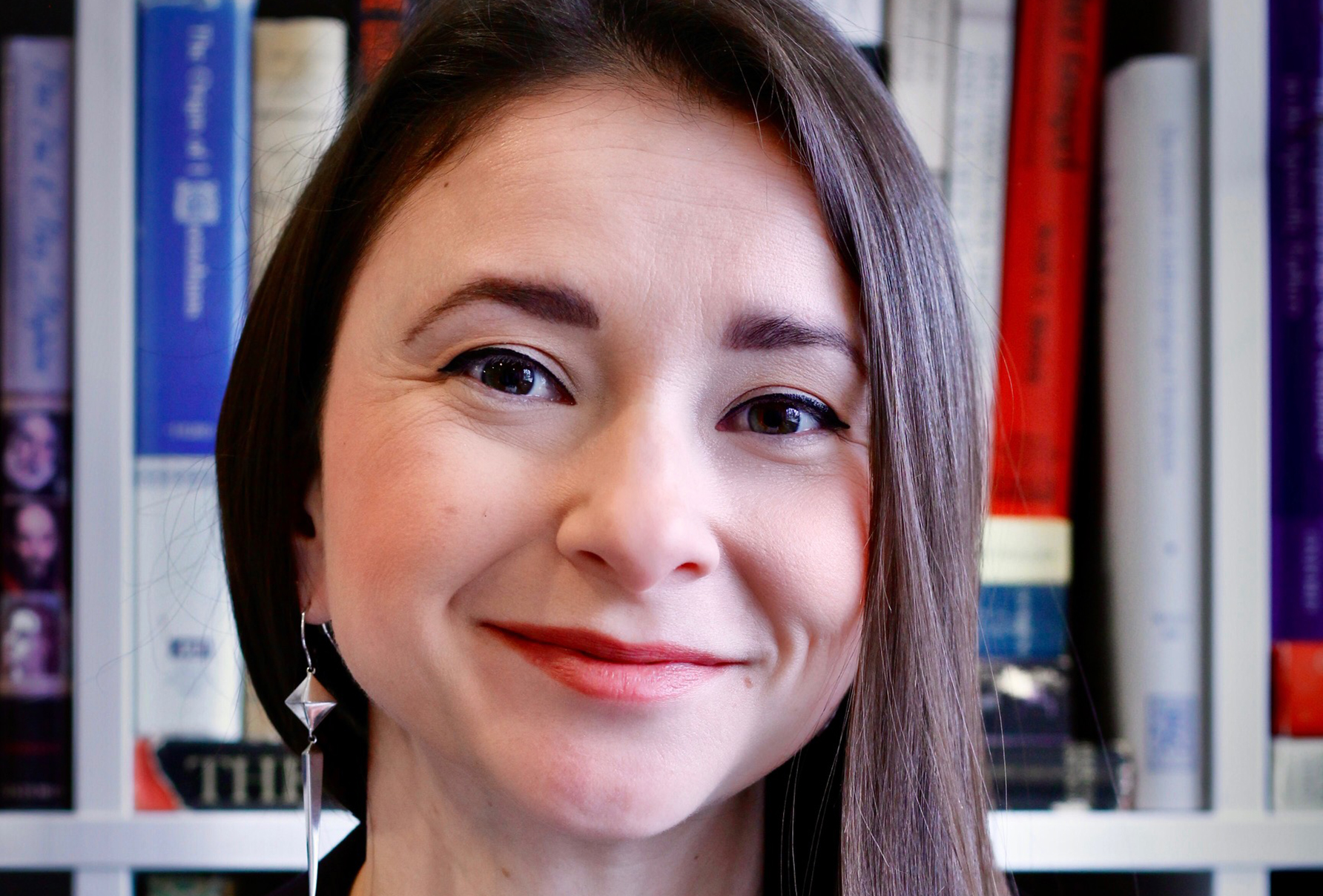
Brigidda Zapata Bell joined Moravian Theological Seminary in 2022 as Assistant Professor of New Testament. Bell defended her dissertation for her PhD from the University of Toronto this summer and previously taught at the Universities of Toronto, Calgary, and Alberta in Canada. Here, she shares with us how she’s settling into her first semester and the joys of bringing her multilingual Canadian-Ecuadorian background to her teachings for a unique global perspective.
What is your impression of the Moravian Seminary community so far?
I’ve been warmly welcomed into Moravian Theological Seminary, and I’m learning that hospitality is at the center of the community. Our communal kitchen has already seen several events this year, and it is filled with undergraduates at least once a week. While I understand it has been quieter than usual, I sense that community is valued and replenished in many creative forms.
How are you finding the remote/in-person hybrid schedule?
The emergency move to teaching remotely in 2020 posed huge challenges to instructors as we rethought our teaching, but since then I think many of us have learned that online teaching also presents distinct advantages for our students. Given that many of my students work day jobs, have children at home, and/or are in placements, logging into a classroom from home or jumping into office hours while on a lunch break has made learning much more accessible for them. At this point, half of my students are in the classroom and half of them attend the class online, but all of them participate actively in activities and discussions that are planned for the hybrid classroom.
What are you most looking forward to accomplishing in your first year teaching at Moravian Seminary?
I grew up in a bilingual English/Spanish household, and like so many bilingual Americans, I was still required to take that second language in school, although in my case the second language was English. I found it as dull as you would expect, but everything I know about English grammar I learned in my ELL [ESL] high school classes. That gave me a definite advantage when it came time to take on new languages in university. It also gave me a broader perspective on how languages could be taught in the classroom. I had a few amazing teachers who were both creative and gifted at language instruction. This will be the first year that I’m teaching entry-level ancient Greek in the classroom, and I’m hoping to re-create some of the wonder that I experienced in learning from my favorite language teachers.
How does your global perspective inform your teaching of the New Testament?
I am Canadian-Ecuadorian. My mother is from a small town in Northern Ontario, and my father was born in the mountains of Ecuador. I was born in Canada but spent most of my childhood in Ecuador, returning to Canada for university. This means that I traveled back and forth between North and South America a lot as a child and had to learn to navigate cultural differences and my own hybrid identity from a young age.
I am used to people telling me what they think I am based on how they perceive me—based on how I fit into their own worldview. Many of the categories that we use to make sense of the world assume singular perspectives. Those categories don’t allow for hybridity or complexity. I recall a moment in Ecuador in grade 3 when we were learning that countries had national languages, and the teacher called on me for an example. He asked what Canada’s national language was, and when I replied English and French, he said that was impossible, that I should pick one. I recall being confused, then embarrassed; I felt he was upset that I couldn’t answer the question correctly. I hang on to that example to this day because the right answer is both, but for some reason complexity felt threatening in that moment, in that classroom, to that teacher. And I hang on to that moment because it happened again and again in different classrooms and different places, when I presented complexity that stemmed from who I was and what I knew from my own diverse experiences.
The academic study of the New Testament began in 18th-century Germany and has a long and productive history of scholarship whose interests and questions reflect the time and place of its authors. We have inherited a rich set of categories from this tradition, but these largely stem from this singular perspective. Who I am informs the questions I ask in my scholarship, and I encourage my students to bring their whole selves to the table in engaging the Bible because the way they see the world will bring a different set of questions, more complexity, and added challenge to the discipline, and will greatly enrich their learning.
Tell us about the course you’re teaching this semester.
This semester I am teaching a class on Paul’s writings. Many of the things that we think we know about Paul stem from later Christian tradition and not from what Paul says in his own letters. As a historian, it is important to me that students read Paul’s work with an understanding of the social and historical context in which these texts were written. Our modern ideas about race as biological and static, for example, come from the 19th century, yet Paul’s comments about Jews and Gentiles in Christ are often employed to suggest the racial egalitarianism of a universal gospel. Thinking about ancient constructs of ethnicity and race as fluid and essential to identity changes how we understand Paul himself, as well as his words.
For this class, my students write letters of historical fiction to Paul that engage with a particular controversy or pastoral issue that they or their group is facing. This project requires students to dig deep into particular aspects of the ancient world (geography, environment, social life, ritual practice, the culture of letter writing!), but it also pushes them to grapple with the practical consequences of Paul’s thought as received by diverse people with complex identities and rich lives as imagined by them.
What has been your favorite aspect of living in the Lehigh Valley?
I moved [with her husband, Alex, and two young daughters] from the mountains of western Canada, which are absolutely breathtaking, but the winters are very long and cold, which makes the growing season quite short. I was thrilled to see how green it is in the valley and how much wildlife appears right in my backyard. I had missed the hum of cicadas in the summer and the sight of the monarchs migrating. I’m really looking forward to a true fall and watching the leaves change.

